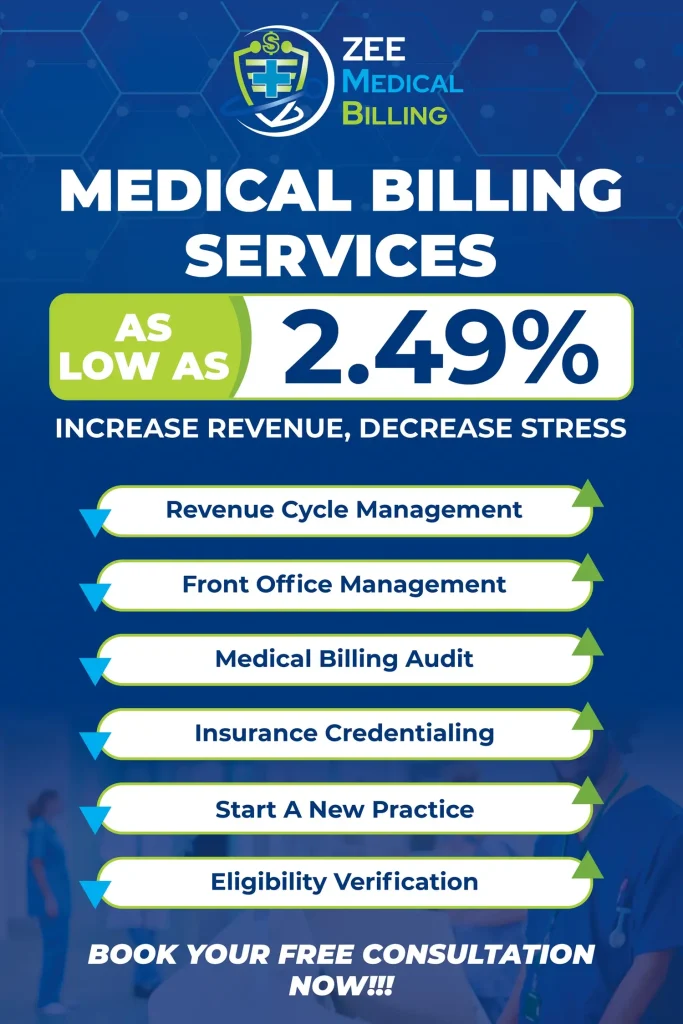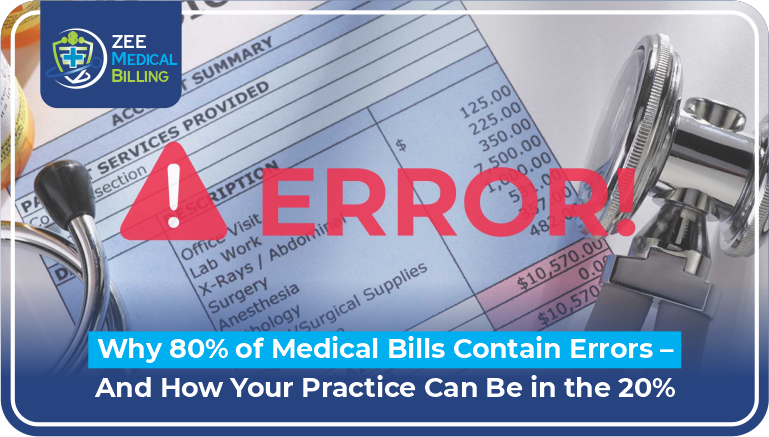Medicare billing can be complex and frequently overwhelming, especially for healthcare providers and billing professionals who should navigate ever-changing regulations and necessities. Mistakes in Medicare billing can prompt claim denials, delays in reimbursement, and even audits or penalties. We’ve made the ultimate checklist for government medical care charging achievement to streamline your billing processes and avoid normal pitfalls.
Confirm Patient Eligibility and Coverage
Mistakes to Avoid: Billing for services not covered under the patient’s Medicare plan.
- Use Medicare’s online tools or contact your Medicare Administrative Contractor (MAC) to confirm patient eligibility before delivering services.
- Confirm whether the patient has additional insurance, like Medigap or Medicare Advantage, to avoid coordination of advantages issues.
Understand and Apply Coding Guidelines
Mistake to Avoid: Using incorrect or outdated codes.
- Keep updated with Current Procedural Terminology (CPT), Healthcare Common Procedure Coding System (HCPCS), and International Classification of Diseases (ICD) codes.
- Double-check code precision to guarantee they match the services provided and diagnosis documented in the patient’s clinical record.
Read More: Boosting Hospitalist Benefits with These 3 Billing Hacks
Keep up with exact and complete documentation
Mistake to Avoid: Lacking documentation to support billed services.
- Guarantee that medical records support the need and appropriateness of the billed services.
- Document any required patient consent forms, treatment plans, and physician orders.
Submit Claims Timely
Mistakes to Avoid: Missing Medicare’s timely filling deadlines.
- Present all Medicare claims within one calendar year from the date of service to avoid automatic claim denial.
- Monitor claim submissions routinely to ensure deadlines are met.
Avoid Duplicate Billing
Mistake to Avoid: Presenting multiple claims for a similar service.
- Execute systems to track submitted guarantees and avoid resubmitting unless correcting an error or answering a denial.
- Review Explanation of Benefits (EOB) statements to distinguish and address duplicate payments or mistakes.
Understand Medicare’s Coverage Rules
Mistake to Avoid: Billing for non-covered services without informing the patient.
- Use Advance Beneficiary Notices (ABNs) to inform patients when Medicare may not cover a service.
- Clearly explain the patient’s financial responsibility and retain a signed ABN.
Our Service: Best Revenue Cycle Management Services
Monitor for Overpayments and Underpayments
Mistakes to Avoid: Failing to identify and address payment discrepancies.
- Routinely reconcile payments with submitted claims to recognize excessive charges, underpayments, or denied claims.
- Refund Medicare overpayments promptly to avoid penalties.
Stay Compliant with Billing Regulations
Mistake to Avoid: Ignoring updates to Medicare policies.
- Consistently review the Centers for Medicare and Medicaid Services (CMS) updates and your MAC.
- Train staff on regulatory changes to guarantee compliance and avoid inadvertent errors.
Implement Internal Audits
Mistakes to Avoid: Allowing errors to continue unchecked.
- Conduct periodic internal audits to recognize and correct billing inaccuracies.
- Use audit results to refine processes and recurring mistakes.
Read More: Common Issues with Healthcare Revenue Cycle Management
Use Technology Effectively
Mistakes to Avoid: Depending on manual processes, they are prone to human mistakes.
- Invest in reliable billing software that incorporates electronic health records (EHR) frameworks.
- Leverage automation tools to confirm codes, check eligibility, and flag potential errors before claim submission.
Conclusion
By adhering to these best practices, healthcare providers and billing experts can limit mistakes, guarantee timely repayment, and keep up with compliance with Medicare regulations. Use this checklist to foster a robust Medicare billing process that lessens stress and improves financial performance.


























